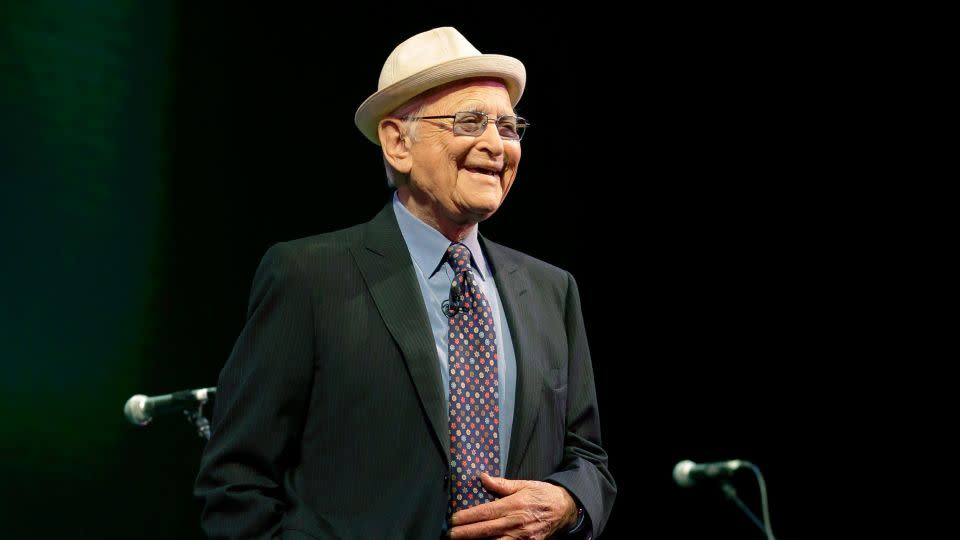Norman Lear and the comedy elders make a case for the power of laughter
At a 2017 screening of “If You’re Not in the Obit, Eat Breakfast,” an HBO documentary about those who have lived into their 90s hosted by then-95-year-old Carl Reiner, producer Norman Lear credited the other people on the panel – fellow nonagenarians Reiner, Mel Brooks and Dick Van Dyke – with lengthening his life thanks to the power of laughter.
Whatever the scientific evidence of that might be, Lear’s death at the age of 101 served as a reminder of all the comedy legends that have enjoyed long and productive lives, including Brooks and Van Dyke, both 97; Bob Newhart, 94; and the late George Burns and Bob Hope (100); “The Mary Tyler Moore Show” trio of Betty White (99), Cloris Leachman (94) and Ed Asner (91); Milton Berle (93); and Don Rickles (90).
Although not as recognizable as the performers within that cohort, Lear’s level of activity might have made him appear the most ageless.
Having produced such shows as “All in the Family,” “Maude” and “Good Times” (amassing a fortune in the process), he continued to work until his death, including a reboot of “One Day at a Time” and updates of his classic episodes for ABC’s “Live in Front of a Studio Audience” with late-night host Jimmy Kimmel, who characterized Lear’s life in an on-air tribute as “101 years, and somehow it wasn’t enough.”
The producer also lent his name and support to the Norman Lear Center, a research and public policy center at the University of Southern California’s Annenberg School for Communication and Journalism. As center director Martin Kaplan noted in memorializing Lear, his goal was “inspiring Hollywood’s creative community to use its power for social good.”
Beyond media, Lear remained a tireless advocate for progressive political causes, having founded the group People for the American Way and purchased an original copy of the Declaration of Independence, which he sent on a tour across the US beginning in 2001.

Lear’s talented friends and contemporaries have also remained active, with Brooks recently participating in producing a Hulu revival of his movie “The History of the World, Part II.”
In his later years, Lear frequently spoke of what he saw as the benefits of laughter, as he did at the aforementioned 2017 event as well as during an interview for the “Chasing Life” podcast presented by CNN’s Sanjay Gupta in 2022.
“I do believe laughter belongs in every conversation about longevity,” Lear said, who was just short of 100 at the time, calling the many hours he spent listening to an audience laugh a “spiritual experience.”
Whether that long list of comedy elders reflects mere happenstance or something deeper, their vitality well past the usual actuarial tables does seem to make a case for finding humor and purpose in life, especially for those who possess the talent and drive to share that with the world.
“If you can’t laugh, life would be pretty empty,” Reiner mused in “If You’re Not in the Obit.”
At an event partially sponsored by the Lear Center honoring TV writers held the day after Lear’s death, his wife Lyn sent a message to those in attendance, saying her husband “would not have wanted all of us to mourn. He would want us to celebrate the important shows you are honoring tonight, and most of all, he would want us to laugh.”
Lear’s legacy, and those of the other nonagenarians and centenarians mentioned, will linger beyond their long lives. And perhaps all there is to say about that, to borrow the lyric Hope used as his trademark sign-off, is thanks for the memories.
For more CNN news and newsletters create an account at CNN.com
